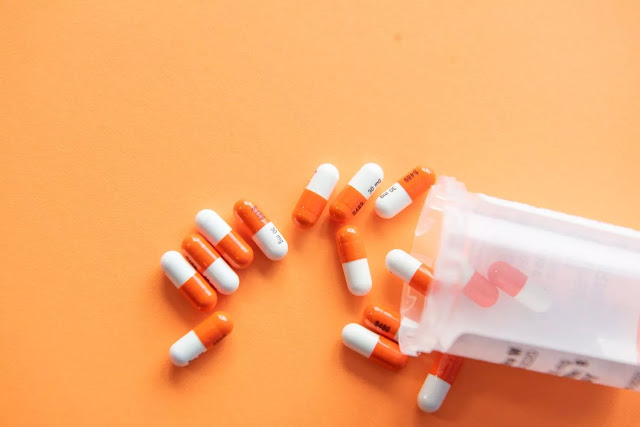The DOT drug test is conducted by the Department of Transportation of the United States government. The DOT is determined to provide public safety without compromising the flexibility given to the transportation companies to conduct their operations.
Who needs to take the DOT drug testing?
All the employees who are placed in safety-sensitive positions are subject to DOT drug testing. People working in sectors like Aviation, Commercial motor carriers, Maritime services, Pipeline (operations and management services), transit, and railroad services usually undergo drug testing based on the DOT guidelines.
Within the DOT, The Office of the Secretary’s Office of Drug and Alcohol Policy and Compliance (ODAPC) publishes rules on how to drug test employees in safety-sensitive positions. If you are a safety-sensitive employer, you must choose the best drug testing kits to test your employee for DOT recommended drugs.
What are the drugs tested by DOT?
The DOT conducts urine drug tests to identify the drug traces in the individual’s system. For alcohol testing, the DOT recommends conducting a breath or saliva drug test. Below are the drugs that the DOT test for.
- Marijuana metabolites
- Cocaine
- Amphetamines
- Opiates
- PCP
According to the reports of DOT in 2015, amphetamines and marijuana are the most abused drugs among safety-sensitive employees.
Can employees taking prescription medications and OTC perform safety-sensitive functions? Are they drug tested?
Employees taking prescription medications and OTC can perform safety-sensitive functions, but they should follow minimum standards. They include
- Only a licensed physician should prescribe the medicines.
- The dosage level should be consistent with the safe performance of your duty.
- If you are taking prescriptions from two or more physicians, you should show that at least one of your consulting physicians knows about the medications you are taking.
- Some of the agencies might have regulations against some prescription medications like methadone, etc.
When are the DOT tests conducted?
The DOT allows the employer to conduct drug tests for the employees on the below-mentioned occasions.
- Pre-employment drug test
- Random Drug Test
- Post-Accident drug test
- Return-to-duty drug test.
- Follow-up drug test
- Reasonable suspicion.
All the new hires should undergo the DOT drug test if they are employed in any sector that involves a safety-sensitive position. For instance, even if you are appointed in the transportation department in a school, there are chances that you might face the DOT drug test. Alcohol drug testing may differ based on the discretion of the employer.
Which panel test kit is mainly used in DOT?
Usually, the DOT recommends a 5-panel drug test for drug testing safety-sensitive employees and new hires. So, the employer may use a 5-panel drug testing kit for DOT-related drug testing. According to the DOT guidelines, the employer should conduct the drug test randomly per year, after accidents, and during suspicion.
How does your DOT drug testing work?
- If you are in transportation or other safety-sensitive position, you will be notified about your drug test.
- The test may be conducted during a pre-employment or random drug test, post-accident, or during reasonable suspicion.
- You should report to the collection site on the notified date.
- The tester will verify your ID, check your pockets, and provide a sealed collector to collect your urine for testing.
- The tester will check the temperature of the sample and store them in two bottles A & B.
- The Lab tester analyzes bottle A and sends the results to the Medical Review Officer.
- The MRO will review the drug results and take adequate action based on the results.
Can you refuse your DOT drug test?
DOT prohibits the individual from refusing the DOT drug test. So, it is best if you take your drug test without denying it. Even if you feel that you have been unfairly selected to give your test, proceed with it anyway. After the test completion, you can express your concerns to the employer or DOT agency drug and alcohol control program office.
Refusing your drug test could be considered as positive by the agency, and you may be removed from the safety-sensitive position until you give your drug test.
What happens if I test positive in a DOT drug test?
- You might be immediately removed from the safety-sensitive position. If you are a new hire, the employer may revoke your employment offer.
- You may be permitted to return to your position if you undergo an evaluation from the Substance Abuse Professional ( SAP), complete the program recommended by the SAP, and provide a negative test result to the employer (return-to-duty testing).
Note: Upon return-to-duty screening, You might undergo unannounced drug testing six times in the first 12 months of active service. This might continue for up to 60 months as per the recommendations of SAP.
Final words
DOT drug test draws a fine line in regulating the safety-sensitive positions from getting diluted through illegal drugs. If you are opting for or in a safety-sensitive position, make sure that you stay away from drugs to have a peaceful and successful employment track.
Originally published at https://adclays.com/what-is-dot-drug-test/

Comments
Post a Comment